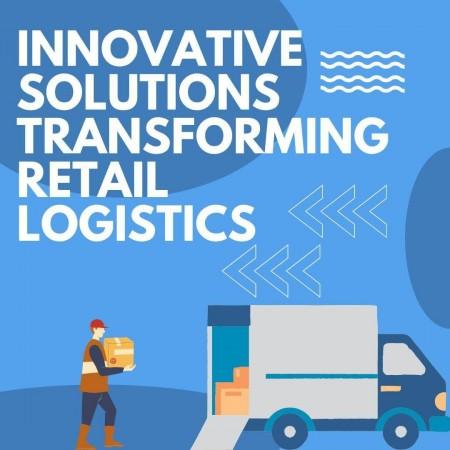
Retail logistics is undergoing a significant transformation, fueled by the integration of cutting-edge technologies and dynamic fulfillment models. This shift is redefining the way businesses manage supply chains, optimize last-mile delivery, and enhance customer experiences. In his research, Srinivas Ankam explores these evolving trends and highlights how digitalization is revolutionizing retail operations. Ankam, an expert in logistics and supply chain innovation, delves into the implementation of AI-driven solutions, micro-fulfillment centers, and sustainable distribution methods.
The Rise of Smart Logistics Systems
Retailers are increasingly adopting smart logistics solutions to streamline operations and improve efficiency. AI-powered route optimization systems have demonstrated a 37% reduction in operational costs and a 42% increase in delivery efficiency. These advanced systems process real-time traffic data, weather conditions, and vehicle capacities to ensure seamless deliveries. The ability to integrate multiple data points simultaneously enhances last-mile logistics, particularly in high-density urban environments.
Enhancing Delivery Visibility with IoT Integration
Supply chain transparency has become a key priority in modern retail. The integration of IoT sensors and real-time tracking solutions has improved customer satisfaction rates by 56% while reducing delivery delays by 44%. These smart tracking systems also play a crucial role in minimizing product damage, with studies showing a 39% reduction in losses during transit. With greater visibility, retailers can proactively address logistical challenges and ensure timely fulfillment of customer orders.
The Power of Micro-Fulfillment Centers
The adoption of micro-fulfillment centers (MFCs) is transforming the efficiency of retail logistics. These compact, automated hubs have reduced operational costs by 35% and improved order processing efficiency by 45%. With the ability to process orders within just a few hours, MFCs are proving to be an invaluable asset for retailers looking to expedite delivery times and meet consumer expectations. These centers, powered by AI-driven inventory management, ensure optimal stock levels while reducing excess inventory by up to 30%.
Automation in Order Fulfillment
Retailers are embracing automation to optimize order fulfillment processes. Robotic picking systems have demonstrated a 200% improvement in throughput, enabling businesses to process thousands of orders per day with high accuracy.
Alternative Delivery Solutions Reshaping Logistics
To enhance last-mile logistics, businesses are leveraging innovative delivery methods such as crowd-sourced platforms and autonomous delivery solutions. Crowd-sourced delivery models have reduced last-mile costs by 28%, while also ensuring faster deliveries. In urban environments, autonomous delivery robots have contributed to a 32% reduction in CO2 emissions, showcasing their potential for sustainable logistics. Additionally, click-and-collect solutions, powered by smart locker systems, have minimized failed delivery attempts by 42% and enhanced customer convenience.
Sustainable Initiatives Driving Green Logistics
The push for sustainability has led to the increased adoption of electric vehicles (EVs) in last-mile logistics. Studies show that EVs reduce direct CO2 emissions by 42%, while smart charging infrastructure improves energy efficiency. Furthermore, carbon tracking systems have enabled businesses to cut emissions by 23.5% through optimized routing and resource allocation. As sustainability becomes a critical focus, these innovations are shaping a greener future for retail distribution.
Measuring and Optimizing Performance
Retail logistics is increasingly data-driven, with businesses implementing strategic performance measurement frameworks. Companies adopting balanced scorecard approaches have achieved a 25% improvement in supply chain efficiency. AI-powered optimization tools have also played a role in refining logistics operations, reducing last-mile delivery costs by 16% while maintaining high service quality.
In conclusion,The future of retail logistics is being shaped by technological advancements and sustainable initiatives. As highlighted by Srinivas Ankam, integrating AI, IoT, and automation into last-mile delivery and fulfillment operations enhances efficiency, reduces costs, and improves customer satisfaction. Businesses that successfully adopt these innovations will be well-positioned to thrive in the evolving retail landscape, offering faster, smarter, and more sustainable solutions to meet consumer demands.









